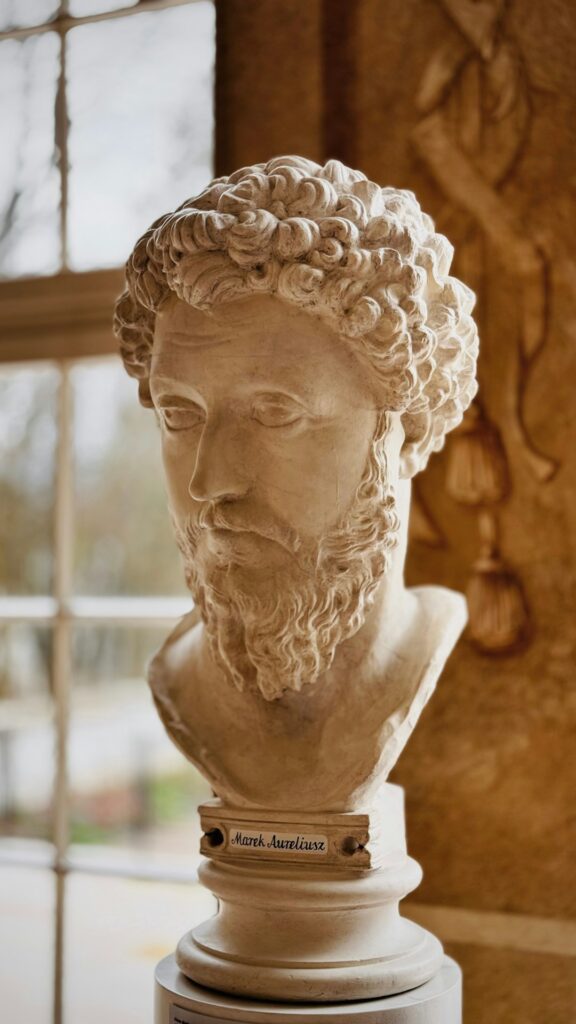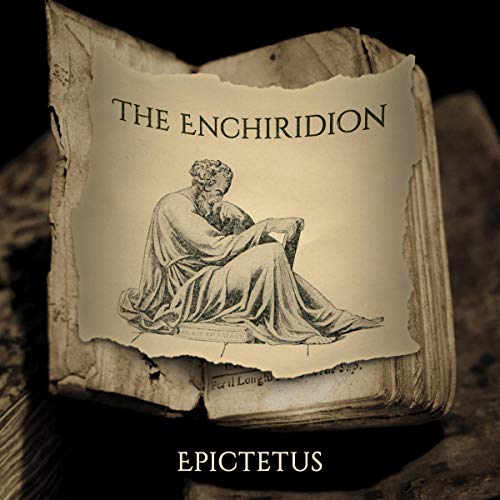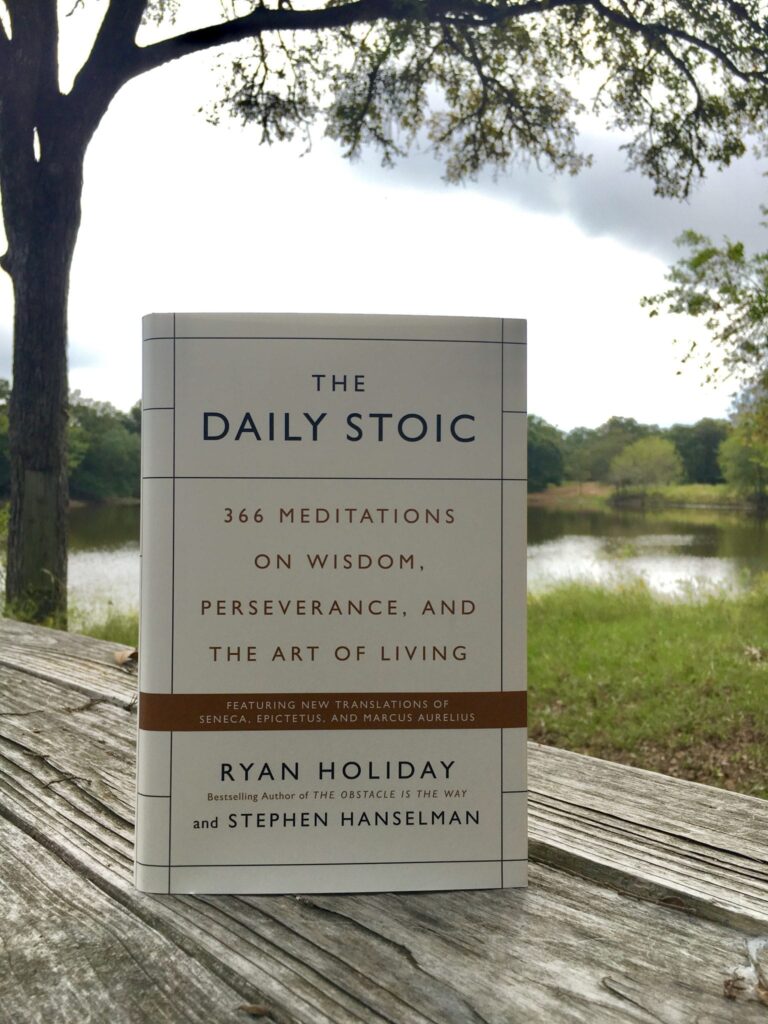A Stoic Reading List
A smorgasbord of works/My first ever Listicle
I have been practicing Stoicism for a good eight years at this stage, so I would like to think that I know a thing or two about the texts most fundamental to Stoic practice. Therefore I have compiled this quick reading list which should cater to everyone from beginners unacquainted with the difference between Stoicism and stoicism, to individuals looking for where next to go in their continued Stoic practice.
I have also cheekily included my Amazon affiliate links in this post and would massively appreciate it if you purchased your Stoic texts through one of these links. This comes at no extra cost to you while simultaneously helping me to keep the lights on here in Dublin, which if you were otherwise unaware of to this point remains extortionately expensive.
So let’s go with my first-ever listicle and I hope you pick up at least one of these works, who knows it might just change your life or provide a good doorstop. That’s just the magic of listicles or so I have been told by my friends.

The Meditations – Marcus Aurelius
“You have power over your mind – not outside events. Realize this, and you will find strength.”
Where else could I begin, bar the book which started it all for me. The Meditations provide the perfect entry point for any prospective Stoic and an effective manual for any individual hoping to continue their practice. The harrowing honesty and tremendous self-sacrifice evident in every line just go to show why this text is considered to be the beating heart of Stoicism.
The meditations were written by Marcus during his campaigns against the Marcomanni in Germanic. They represent the purest thoughts of the closest approximation to Plato’s philosopher King that we will ever see, as he never intended for the book to be published. Marcus had instead asked for his thoughts to be burned following his death and for this reason the advice proffered in the book can be followed to the letter without having to be concerned by the motivations of the author.
My advice although it is far less dignified and useful than that of Marcus Aurelius, is to go out and buy the damn book … believe me you’re guaranteed to learn more about Stoicism and the good life in the Meditations than just about anywhere else.

You can pick up your copy here
Man’s Search for Meaning – Victor Frankl
“When we are no longer able to change a situation, we are challenged to change ourselves“
Going from antiquity to a more modern work, that of the uplifting and profound Man’s Search for Meaning. Victor Frankl wrote this piece following on from the time he spent in a concentration camp, an experience which would have levelled the vast majority of us. Yet Frankl was able not only to survive this time but also positively impact on so many others by sharing what he learned during this period.
Although not strictly a Stoic text the very nature and soul of the philosophy is embodied within the book. The manner in which Victor Frankl was able to focus on what was in his control even in the darkest of circumstances is truly inspiring. Furthermore the manner in which he professes that with a why we can endure any given how strikes at the heart of what unit is to be a Stoic.
Similar to the above, you should pick up a copy of this book and I am truly jealous of you for getting the opportunity to read this piece for the first time.

You can pick up your copy here
The Enchiridion – Epictetus
Our master is anyone who has the power to implement or prevent the things that we want or don’t want. Whoever wants to be free, therefore, should wish for nothing or avoid nothing that is up to other people
The author of the Enchiridion Epictetus, evidences the cosmopolitan nature of Stoicism in that during antiquity it was practiced by Emperor and slave alike. The Enchiridion is not the easiest read and can at times feel harsh and cold, however it truly lives up to its direct translation and acts as a handbook for Stoic philosophy.
This text requires much in the way of effort to digest the sheer wealth of knowledge behind every line. Yet this effort will be rewarded tenfold, as with each rereading, (and there will be many as I am yet to meet anyone capable of digesting the full wealth of Epictetus’ wisdom in one sitting), we draw closer to understanding the best possible manner in which to act and think as Stoics.
Although I would recommend to start with an easier text perhaps that of Aurelius or Seneca, Epictetus hits to the very core of Stoicism in a mere 38 pages.

You can pick up your copy here
Letters from a Stoic – Lucius Annaeus Seneca
If you really want to escape the things that harass you, what you’re needing is not to be in a different place but to be a different person
Seneca has always been in my opinion the most accessible of the Stoics. The format of this text as letters to a dear friend who the author is attempting to advise, gives a more personal touch than that which is provided for in the Enchiridion.
For me however, it is the fact Seneca was to the very core of his being a hypocrite. He did not display the consistency of moral fortitude that the above three authors displayed throughout the course of their lives. Rather he gave in to greed and the weakness inherent within the nature of what it is to be human. His final hours display to us that even though we may not be Stoics in every single moment of our lives, it is never too late to turn it all around.
In the true embodiment of do as I say not as I do, Seneca and his Letters are worth examination.

You can pick up your copy here
The Daily Stoic – Ryan Holiday
Control your perceptions. Direct your actions properly. Willingly accept what’s outside your control
Now for something completely different! Ryan Holiday has done much in the way of popularising Stoicism for a whole new generation. While I am not always in agreement with what Ryan brings to the table for Modern Stoicism, I do appreciate his continued efforts to help others live better lives.
In this piece he presents 366 separate thoughts which are to be pondered on throughout the course of the reader’s day. This can be of use to newcomer and wizened old sage alike, as it allows us to consistently think upon different aspects of Stoic practice. While it lacks in detail compared to the works listed above, forcing ourselves to consider multi-faceted and diverse elements of Stoicism on a daily basis can aid us in developing our consistency of practice.
I would never recommend reliance upon something like the Daily Stoic in isolation, with one of the pieces mentioned above this can be a worthwhile resource to engage in and turn to on day-by-day.

You can pick up your copy here
A conclusion of sorts
Well now that we have all made it through my first ever listicle, I would like to thank you in advance for your patience, your potential purchases and your willingness to put up with my ramblings. These pieces are simply five books which I believe could be of use to any individual seeking to practice Stoicism. I will probably supplement this list with further recommendations in future, however for now I hope you pick up a copy of one of the above and begin to implement its teachings into your practice. If you do please let me know your thoughts and any personal recommendations for my next(and hopefully better conceived) listicle!



